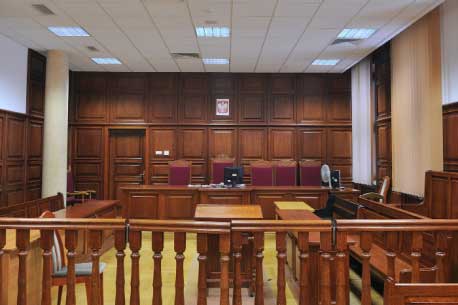As it has been mentioned at the discussion of the enforcement proceedings, a penalty adjudicated by the court for an offence committed must be executed in accordance with the provisions of the Executive Penal Code. It contains detailed provisions specifying the conditions of penalty enforcement.
Fine
If a fine has been adjudicated, the court calls the convict to pay it within 30 days. If the due date elapses and the fine is not paid, it is executed in the enforcement proceedings. However, if the fine does not exceed 120 day-fine units and execution of this sum is or can be ineffective, the court can replace the fine with socially useful works (duration of such works is determined in months, with 20 to 40 hours per month).
Nevertheless, the convict can refuse to carry out socially useful works, or performance of these works by the convict can be impossible or ineffective, due to various reasons. In such a case, the court can replace the fine with a substitute penalty of imprisonment, where one day of imprisonment is equivalent to two day-fine units. However, a substitute penalty cannot exceed 12 months of imprisonment (and the upper limit of imprisonment for the offence committed).
It should also be remembered that a fine can be paid in instalments if its immediate execution would cause too severe consequences for the convict or his/her family. A fine can be divided into instalments for a period not exceeding 1 year and in special cases - 3 years. A complaint can be lodged against a decision in this matter. Should payment of the fine be impossible or ineffective due to the circumstances unrelated to the convict, in justified cases the court can remit the fine in part or even in full, depending on the situation.
Restriction of liberty
The penalty of restriction of liberty is aimed at stimulating a convict's willingness to develop a socially desirable attitude: a sense of responsibility and a need to obey law.
Restriction of liberty can consist in an obligation to carry out supervised social works, with no remuneration, for a specified duration and number of hours per month. This penalty is implemented in the place (or nearby) of permanent residence or employment of the convict. Specific places where unremunerated and supervised social works can be carried out are designated by the head of the district or the town mayor.
Execution of this penalty is supervised by a court-appointed probation officer. Within 7 days from receiving the judicial decision, the officer summons the convict to carry out works and notifies the convict of his or her rights and duties. Furthermore, after hearing out the convict, the probation officer specifies the type, place and date of commencement of work.
However, if the convict does not appear when summoned by the probation officer or does not commence work on the designated date (or does not agree to it), the probation officer files a motion with the court for adjudication of a substitute penalty.
Imprisonment
The penalty of imprisonment is carried out in various penal institutions:
- For juvenile delinquents,
- For convicts serving a sentence for the first time,
- For penitentiary recidivists,
- For those serving a sentence of military arrest.
Furthermore, penal institutions can vary in terms of the security level, isolation of convicts and resultant rights and duties of convicts with respect to moving around the institution. Thus, penal institutions can be organized as:
- Closed institutions,
- Half-open institutions,
- Open institutions.
In general, a type of the penal institution should be specified in the judgement by the court. A change of the institution can be adjudicated also by the penitentiary court. The penalty of imprisonment in a penal institution is supervised by officers of the Prison Service and employees of this institution. A person sentenced to imprisonment is summoned by the court to appear at a fixed date in a detention facility located nearest to the convict's place of residence, with an identity document. Duration of penalty begins at the moment of the convict's appearance. The court can order the convict to be forcibly brought up to a detention facility without previous notice, and if the convict, despite being summoned, has not appeared in a detention facility, the court orders that he or she should be compulsorily brought up. The convict is charged by the court with the costs of the compulsory appearance.
[Legal status as at July 2015]



